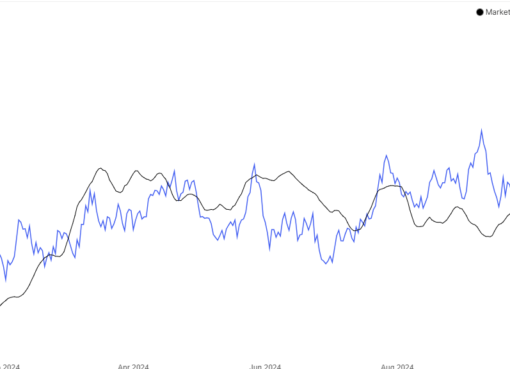The case of clients’ money from Gemini’s Earn program, frozen for a year and a half, is finally moving toward a resolution.
On May 17, Judge Sean H. Lane approved Genesis’ Chapter 11 bankruptcy plan. The decision will allow the firm to return customer funds frozen on the platform since November 2022. The platform is expected to return about $3 billion to creditors in cash and crypto assets.
According to court documents, Gemini will begin issuing refunds to Earn members by the end of May.
The payment decision comes from a judge who dismissed a lawsuit brought by Digital Currency Group (DCG) and particular interest group Genesis Crypto Creditors. DCG previously argued that all claims should have been valued in U.S. dollars when the company filed for bankruptcy in January 2023.
Where it all started
In 2020, Gemini and Genesis agreed on mutually beneficial cooperation terms. The exchange offered its clients in the U.S. to earn an interest from their crypto assets, which Genesis would pay. Since February 2021, the Earn program has been operating in full force.
Gemini acted as an intermediary between Genesis and private investors.
However, in November 2022, the cryptocurrency community was faced with the collapse of the FTX exchange and a significant drop in the prices of Bitcoin (BTC) and leading altcoins. Users were promised returns of up to 13%, but later, problems arose amid the market downturn 2022, and Genesis Global Capital was forced to freeze client assets.
On Nov. 16, 2022, Genesis notified customers about the temporary suspension of repayments and issued new loans due to market turmoil and the collapse of FTX. Because of this, Gemini was forced to limit customer payments using a particular Gemini Earn program. Genesis’ debt to these clients on the Gemini platform amounted to $900 million. At that time, the total hole in the company’s balance sheet exceeded $1 billion.
Gemini fuels conflicts with renewed vigor
Thanks to Gemini co-founder Cameron Winklevoss, Genesis’s problems were given great publicity. He accused DCG CEO Barry Silbert of “unfair tactics” and delayed the decision to return $900 million to exchange clients. He also wrote to the head of DCG in an open letter, claiming that Gemini had yet to receive an agreement to pay off this debt.
“Earn users are tired. They’re scared. Many are now in dire straits. And yet despite all that they have had to endure, they have been remarkably patient and supportive. But there is only so much more they can take.”
Cameron Winklevoss, Gemini co-founder
Winklevoss, on behalf of Gemini and the 340,000 users of its Gemini Earn service, asked the DCG board to remove Silbert, citing DCG’s failure to provide payments to creditors under his leadership.
The official Digital Currency Group X account posted a response to an open letter from the Gemini co-founder.
The company confirmed that it will take any measures to legally protect its interests and maintain an ongoing dialogue with Genesis’ creditors.
“DCG will continue to engage in productive dialogue with Genesis and its creditors with the goal of arriving at a solution that works for all parties.”
DCG statement
Litigations with SEC
In January 2023, the Securities and Exchange Commission (SEC) sued Genesis Global Capital LLC and Gemini Trust Company LLC over Gemini Earn.
The SEC filed its civil lawsuit in Manhattan federal court, arguing that Genesis should have registered Gemini Earn and provided customers with detailed financial information about the program.
However, Gemini and Genesis argue that the Gemini Earn Program should not be classified as a securities offering. This is a simple loan agreement, and the so-called investment contracts were not sold on the secondary market, the project’s creators assure. Tyler Winklevoss, a co-founder of Gemini, has also slammed the regulator’s charges.
The transactions could be considered loans, so the companies asked the court to dismiss the regulator’s lawsuit or make an alternative decision — to overturn the SEC’s request for a permanent injunction against the program.
In November 2023, Genesis decided to sue Gemini for $689 million. Genesis lawyers believed that exchange’s management’s actions damaged other creditors, so they filed a lawsuit in bankruptcy court in New York against the exchange, asking for justice.
Final settlement
In February, Gemini management announced that the exchange had settled with Genesis’ bankruptcy settlement. In case of approval, all Gemini Earn program participants could return 100% of their digital assets.
Last week, the court approved a plan to repay Genesis’s obligations to creditors. The court also overruled the challenge, finding that Genesis’ parent company had no legal basis to challenge the compensation plan.
What will happen to Genesis after the court’s decision?
Simply put, the court held that the value of the debtor’s assets was insufficient for DCG to realize any financial gain as a shareholder after repaying the unsecured debts. Judging by the size of the creditors’ claims, DCG, as a public company shareholder, was financially depleted by billions of dollars even though DCG’s proposed valuation method was used in the court’s assessment.
Since Genesis will exhaust almost the entire bankruptcy estate to pay off obligations to senior creditors, DCG’s chances of receiving its share of payments are nearly zero. Thus, the court’s decision leaves DCG without compensation and no chance of recovery.




